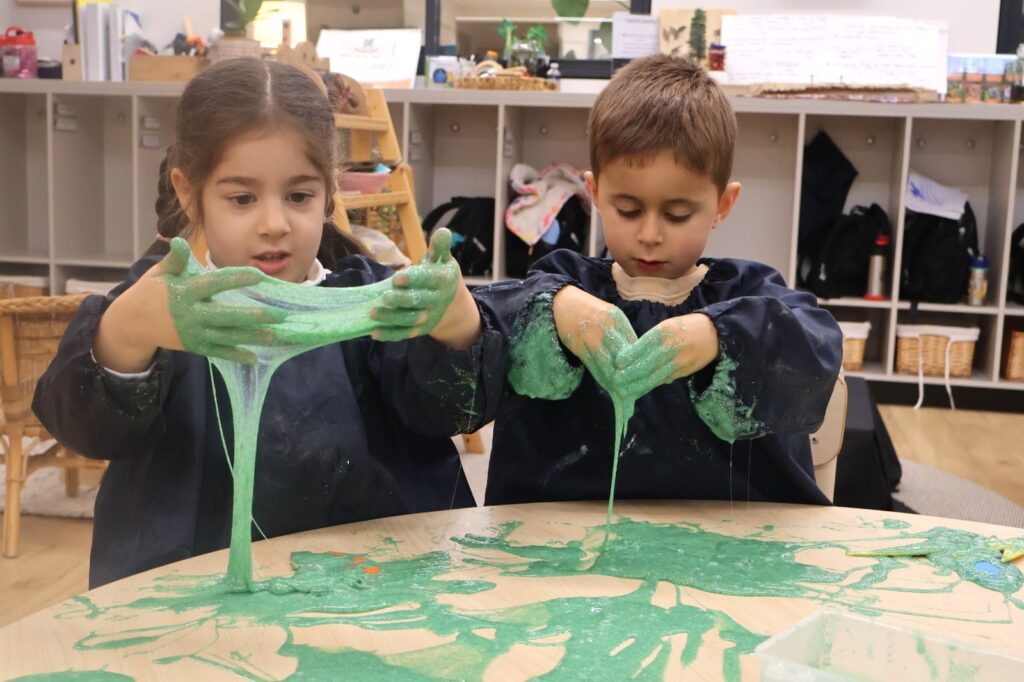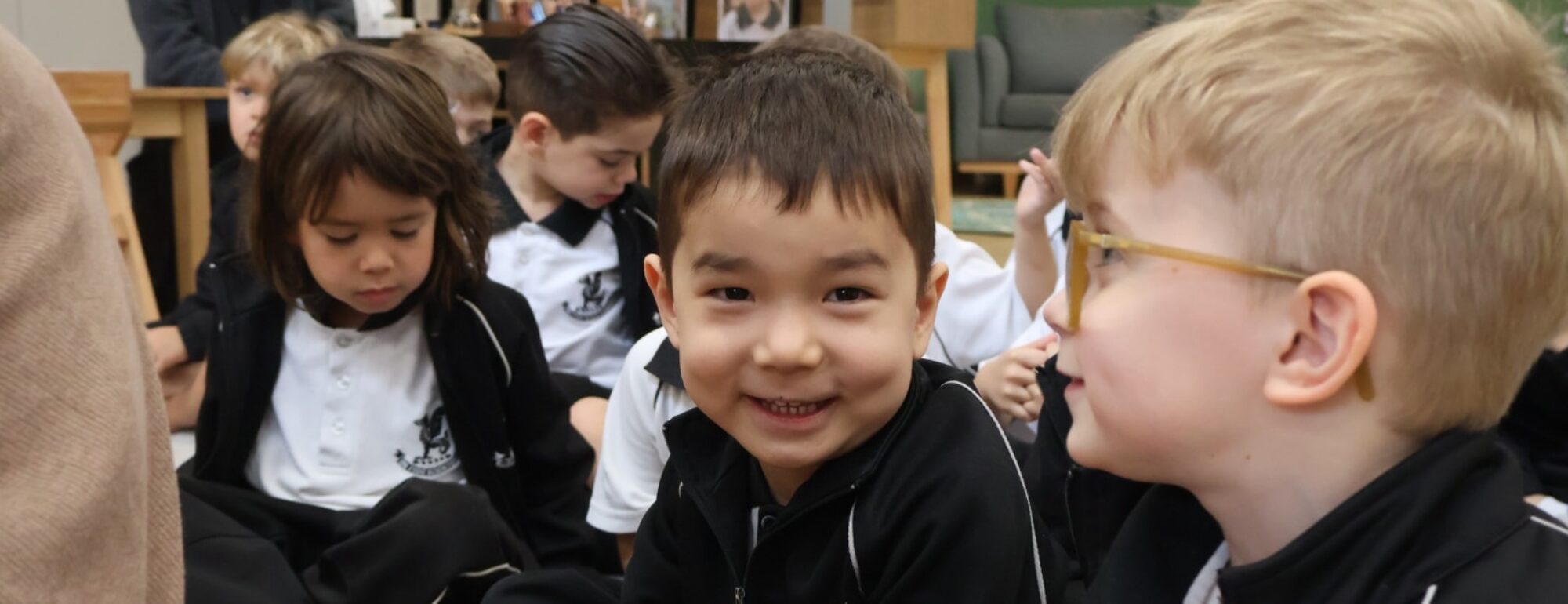31 October 2024
From the Head of the ELC
Dear Families,
In the many conversations I have had with families, past and present, ‘resilience’ is a common theme expressed as a goal for their child. From an early childhood educational lens, building resilience in children is a key aspect of supporting the social and emotional wellbeing of our three to five-year-olds.
In child development, resilience can mean so much more for children. We all know that resilience is a skill, and children are not born with it. Rather, it is a skill they develop over time. Other than helping children deal with difficult times in life, building resilience can also give them strength and confidence.
Why is resilience in children important?
Resilience can have flow-on effects in so many other areas of a child’s life. Emotionally resilient children recover more quickly from sadness, disappointment and frustration associated with challenges. Socially, they are more confident, empathetic and likely to stand up for themselves. They are capable problem solvers and open to learning new things. Mentally, they are more willing to step outside their comfort zones and take safe risks. They deal with their problems in healthy ways rather than burying their feelings or lashing out. Developing resilience in the early years sets up children for success in life.
What factors build children’s resilience?
How a child builds resilience depends on several factors. There are internal factors, such as skills and the personality traits of the child. And there are external factors, such as the community, family and social environment around the child.
Resilience is not an isolated skill. It relies on other skills, such as how a child copes with situations and if they can self-regulate their emotions. A resilient child is confident with high self-esteem and has a sense of optimism about the world. They generally have strong relationships with their family, peers and within the broader community.
It is important to look at the ‘whole child’ and equip them with a broad set of skills that will support their resilience.
Skills children require
Building resilience takes time. Like the muscles in our body, the more they are worked, the more they grow. A strong muscle needs the muscles around it to be equally strong. Below are some of the other ‘muscles’ children need to develop to support their resilience. These skills can help set up children for success in the early years and beyond.
Communication and problem-solving skills
Resilience is not about independence and working through challenges alone. A resilient child can communicate when they need help and how they are feeling. They also do not shy away from challenges but view and approach them as problems to be solved.
Ability to manage strong emotions
It is normal for children to experience strong emotions, from sadness to anger and frustration. While they may know that reacting angrily is not the ideal thing to do, being able to actually manage their response is quite tricky. This self-regulation plays an integral role in building resilience.
Realistic and achievable plan
Planning gives children the ability to see the bigger picture and solve problems to get the result they want. Children respond better when plans are realistic and achievable, making them more likely to succeed.
Confidence in abilities
In many ways, a child’s confidence and resilience go hand in hand. When a child is confident in their abilities, they may be more likely to face a situation rather than try to avoid it. Self-belief is a powerful thing! Supporting children to believe that they are capable enough to overcome a challenge can impact their success level of resilience.
Equipped to teach resilience
Children do not suddenly become resilient overnight. Rather, they build their resilience through experience. As parents, caregivers and educators, we can help teach resilience.
We can role model resilience and allow children to see it in action. Show them how to handle disappointment and develop emotional skills. This will help them to normalise setbacks.
Children need to learn how to fail. They also need to learn how to ask for help. They cannot do either of these things effectively if they do not have space. Giving children space to take healthy risks supports them to stretch and challenge themselves and then celebrate their bravery whether they win or fail.
Teaching children resilience needs to focus on language that is positive, empowering and affirming. Acknowledging their emotional pain but teaching them to reframe those feelings into possibilities with age-appropriate language can build up their resilience.
In our setting, we harness healthy, stable relationships and secure attachments to build children’s resilience. Consistent reassurance, encouragement and helping each child identify their skills and strengths is a secure foundation for resilience building.
Source: Children’s resilience – Working with the Early Years Learning Framework, Pam Linke and Judy Radich (Early Childhood Australia Research in Practice Series), 2010.

What’s Happening this Term
Orientation for 2025 Goanna and Eagle Classes
Current Possum Class children will have designated orientation time to play, explore and become familiar with the Eagle and Goanna classrooms throughout the term. These exploration times will provide opportunities for the children to become familiar with the environment that will potentially become their classrooms next year.
Goanna and Eagle Classes Transition to School Program
The Goanna and Eagle class children will attend the K-2 Chapel and Assembly at Wyvern on the following dates:
- Friday 1 November from 9.00am: K-2 Assembly
For children enrolled to attend Wyvern in 2025, two sessions of Kindergarten classroom visits will take place on the following dates:
- Thursday 7 November from 9.00am-10.00am: Session 1 Kindy Class Visits with Parents (children to be taken by parents)
- Thursday 28 November from 9.00am-10.00am: Session 2 Kindy Class Visits
Second Step Early Learning Program for the four to five-year-old classes
The ‘Second Step Program’ designed for early learning will be offered to our four-to-five-year-old age group to support their transition to school. This program is continued at Wyvern. It teaches children important life skills for getting along with others, understanding self-care and protection, and setting them up for a strong start to commencing school. I will be implementing this program in the Goanna and Eagle classrooms.
Service Learning – The Gift of Giving
Term 4 is the perfect time to engage the ELC children in Service Learning as we draw near to the festive season of giving. We invite you to be part of our ‘Gift of Giving’ learning process through the following charity events:
Greeting Card Purchases
The children have been designing unique greeting cards that will be printed and be available for sale to families. All proceeds raised will go towards sponsorship of a child through World Vision.
Anglicare ‘Toys n Tucker’
We request items to be donated to provide for those in poverty.
Ms Aisling Aherne, our Charity Team Coordinator, will be overseeing this project. Further details will be communicated via Storypark.
Possum Class Open Music Lesson
- Date/s: Wednesday 13 OR Thursday 14 November
- Time: 9.00am-9.30am
We invite Possum class parents to join the music lesson time on the day their child attends the ELC, Wednesday 13 or Thursday 14 November. It will be a time for parents to experience the wonderful learning their child is involved in during a normal music lesson.
ELC Learning Celebration
Date
- Date: Friday 29 November
The Program:
- 2.00pm: Music Showcase (Goanna & Eagle class parents only)
- 2.40pm: Learning Exhibition (All ELC families)
- 3.00pm-4.30pm: ELC Community Gathering (All ELC families)
Important planning
- Goanna & Eagle class families: Sign out children on arrival for the Music Showcase
- Possum class families: Arrive by 2.40pm and sign out children on arrival for the Learning Exhibition
- Possum class (three-day attendees): If your child is a three-day attendee, we kindly ask that you attend this event with your child, arriving by 2.40pm. We thank our you in advance for your time and effort to do this and join our ELC community gathering time.
ELC Email Address
Should you have any queries, please do not hesitate to contact us at elc@newington.nsw.edu.au and we will respond to you as soon as possible.
Warm regards,
Ms Sharon Lee
Head of Early Learning Centre

In the coming weeks, we will be profiling a staff member from each of our different campuses. This week, we introduce you to Jodey Baylis, a Year 6 teacher from Wyvern House.
Q. Why teaching? What is it you enjoy about teaching?
A. I was a student who often struggled in school. Sitting still and focusing was difficult for me, and looking back as an adult, I realise I often felt unseen, with my unique strengths going unrecognised. This experience inspired me to become a teacher – so I can ensure that every student feels seen, valued and supported. My goal is to help students reach their full potential in a way that honours and embraces who they truly are.
Q. What is something people don’t know about you?
A. You wouldn’t know it now, but I used to be an athlete. I began as a swimmer and eventually transitioned into triathlons. After just three weeks of training, I competed in my first triathlon at the New Zealand Junior Championships and finished 5th. That led to my selection to represent New Zealand at the Triathlon Junior World Championships. The following year, I placed second at the New Zealand Junior Championships and competed in the Triathlon Junior World Championships again, this time in Mexico, where I ran my fastest 10k at 38 minutes.
Q. Which book, movie or TV show do you think every student should experience at least once, and why?
A. When I was in school, I struggled to enjoy reading because I could never find books that truly captured my attention. Now, as a teacher, I read children’s books with the goal of finding ones that spark engagement, so I can recommend them to my students. My top three favourites are Hatchet by Gary Paulsen, Holes by Louis Sachar and Stormbreaker by Anthony Horowitz.



